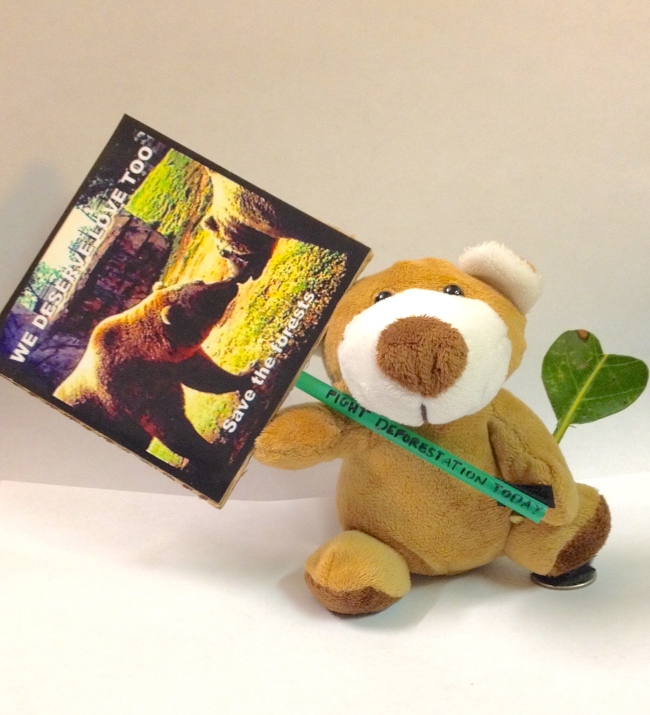One of the most formidable problems fighting against the environment today is seen in the form of deforestation. Deforestation, or the removal of vegetation from natural areas, occurs planet-wide and contributes to a rising number of consequences each year, including climate change and the endangering of species. If action is not taken against deforestation soon, the resulting changes to the Earth could be devastating.
Deforestation occurs for several reasons. The top cause for clearing natural areas is attributed to the unsustainable logging industry, where massive companies cut down trees for timber and building supplies. Deforestation can also happen in the case of forest fires caused by human error, clear-cutting for agricultural purposes, and ranching or urban development. Humans are the source for this degradation of wildlife, and it is up to us to make the decision to solve the issue or let it burn out of control.
In the case of climate change, deforestation plays a major role. Trees are producers of oxygen, essential to the survival of human beings. Trees also absorb carbon dioxide, which is detrimental to human beings as well as to the atmosphere. When trees are removed from the land, a key part in the checks and balances system of the natural earth goes missing. The resulting large amounts of carbon dioxide are then free to roam in the air, mixing with pollution and gradually wearing away at the planet’s protective ozone layer, contributing to global warming.
The effect of animal endangerment is slightly different; instead of a buildup of looming disaster, animals are immediately deprived of essential natural resources. Deforestation destroys natural habitats, displacing the local wildlife from their homes. As forests get smaller and smaller, species are confined to limited grounds for hunting and for finding all elements essential to survival. As trees lessen to the minimum, the animals will eventually die, and perhaps become extinct.
“Save the Forests” is a visual argument that protests against tragic deforestation. The teddy bear in one hand holds a protest sign depicting two grizzly bears kissing, saying, ‘We deserve love too, Save the forests!’ The handle of the sign reads, ‘Fight Deforestation Today,’ furthering the protest. In his right hand, the stuffed bear holds a real leaf in the shape of a heart.
The message of the bear is straightforward, save the forests. However, the delivery of the message appeals to pathos as a form of argument. The stuffed teddy bear relates to all ages, since most people owned one as a child. Teddy bears, as a general consensus, are also considered cute, so their message is more likely to be widely accepted. The bear’s sign portrays two real life grizzlies touching noses, or kissing, adding to the ‘cute factor.’ “We Deserve Love Too” is the plea coming from all bears; just like humans, bears form families and have children whom they love. When humans take away the bears’ homes, the bears are no longer able to love one another because they are endangered and dying. “Save the Forests” is the stuffed bear’s solution to the problem. As seen on the handle of the protest sign, fighting against deforestation is the way to save the forests. The leaf heart held by the bear promotes the forests as well as the desire to allow living things to love one another.
The materials that make up the visual also promote its message. The cardboard backing to the protest sign advances the cause of protesting deforestation, since cardboard is a recycled resource. The plastic straw acting as the sign handle is also a recycled resource, and is also green, the color of forests. The leaf heart is a real leaf, taken from a real tree, and is also green.
The creators of “Save the Forests” are promoters of fighting against deforestation; therefore, they are likely advocators of using renewable resources. The creators use grizzly bears as the focal point for protecting wildlife, so they desire to make known the plight of threatened bears. Grizzly bears are native to North America and were once roaming the continent freely. Today they are restricted to reside in small, protected areas due to deforestation in America and Canada.
Using pathos and heartwarming love as the argument strategy, “Save the Forests” utilizes grizzly bears as its example of the tragic consequences of deforestation. Due to the clearing of trees in natural environments, both world climate and animals are placed in such a jeopardy that could never be rectified unless the perpetrators of deforestation stop and change their course of action when it comes to destroying the natural environment.

